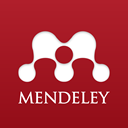Discover the Best Peerlibrary Alternatives for Collaborative Research
PeerLibrary is an innovative open-source project designed to foster a collaborative online community for scholars and researchers. It aims to streamline access to publications, facilitate public analysis and insights, and encourage openness in scientific development. While Peerlibrary offers a unique approach to academic collaboration, many researchers seek alternatives that might better suit their specific workflow, platform preferences, or feature requirements. Whether you're looking for more robust citation management, enhanced collaboration tools, or wider platform compatibility, there are numerous excellent Peerlibrary alternative options available.
Top Peerlibrary Alternatives
Finding the right research management and collaboration tool can significantly impact your productivity and the quality of your academic work. Here’s a detailed look at some of the best alternatives to Peerlibrary, each offering distinct advantages for scholars and researchers.

Zotero
Zotero is a free, open-source research tool that excels at helping you collect, organize, cite, and share research. Available across multiple platforms including Mac, Windows, Linux, Chrome, and Safari, Zotero seamlessly integrates with popular word processors like Microsoft Office Word, Google Drive - Docs, and LibreOffice. Its key features include browser integration, cross-references, cloud storage, and the ability to save web pages for offline use, making it a highly versatile Peerlibrary alternative for comprehensive research management.

Mendeley Reference Manager
Mendeley Reference Manager is a widely used freemium academic software designed for organizing, sharing, and generating bibliographies for research papers. Compatible with Mac, Windows, Linux, Web, Android, iPhone, and iPad, Mendeley offers excellent Word and LibreOffice integration, PDF annotation, and real-time collaboration. Its social network features also provide a collaborative environment, making it a strong Peerlibrary alternative for those seeking robust reference management with social capabilities.

Qiqqa
Qiqqa is a free, open-source research and reference manager available for Windows, Web, and Android. It stands out with its powerful PDF annotation tools, full-text search, and automated features like autotagging and bibliography generation. Qiqqa also offers unique brainstorming modes, content analysis, and real-time collaboration, providing a feature-rich Peerlibrary alternative for in-depth document management and analysis.

Docear
Docear is a free, open-source solution for academic literature management, available on Mac, Windows, Linux, and Web. Its distinct features include robust PDF annotation, integrated mind map view for organizing thoughts, and efficient file management. Docear’s focus on organizing, creating, and discovering academic literature makes it a compelling Peerlibrary alternative for users who benefit from visual organization and portable functionality.

BibSonomy
BibSonomy is a free web-based system for sharing bookmarks and lists of literature in BibTex format. It emphasizes data mining, knowledge management, real-time collaboration, and tagging, enabling users to easily store and share web resources and publications. As a web-first tool focused on social bookmarking and literature sharing, BibSonomy serves as an excellent Peerlibrary alternative for those prioritizing collaborative resource discovery and organization.

EndNote
EndNote is a commercial reference management software with comprehensive support for collaboration, remote access, and automation. Available on Mac, Windows, Web, iPhone, and iPad, it offers strong compatibility with Microsoft Office. EndNote is a powerful Peerlibrary alternative for researchers who require a professional-grade solution with extensive features for managing citations and bibliographies across various devices.

Academia.edu
Academia.edu is a freemium social networking website specifically for academics. It allows users to share papers, monitor their impact, and follow research in specific fields, effectively creating a large online academic community. While not a direct reference manager, its focus on journal sharing and social networking makes it a viable Peerlibrary alternative for researchers looking to broaden their network and disseminate their work.

ReadCube
ReadCube offers commercial desktop and mobile applications for Mac, PC, Web, Android, and iPhone, focusing on helping researchers discover and access literature faster. It features a built-in file manager, efficient file searching, file-sync capabilities, and robust PDF annotation. ReadCube provides a streamlined experience for reading and organizing research papers, making it a strong Peerlibrary alternative for efficient literature management.

Paperpile
Paperpile is a commercial web-based application that integrates seamlessly with Google Drive and Google Docs, allowing users to organize research papers, sync PDFs, and cite references directly in Google Docs. As a Chrome extension with deep Google ecosystem integration, Paperpile is an excellent Peerlibrary alternative for researchers who heavily rely on Google's suite of products for their academic work.

Weava
Weava is a freemium web and Chrome-based collaborative workplace for research, providing an easy way to highlight, organize, and collaborate on research articles. It includes features like bibliography generation, citations, PDF annotation, and text highlighting, making it a powerful Peerlibrary alternative for collaborative reading and note-taking directly within your browser.
Ultimately, the best Peerlibrary alternative for you will depend on your specific research needs, preferred platform, and budget. Whether you prioritize open-source flexibility, robust PDF annotation, extensive collaboration features, or seamless integration with other tools, this list provides a starting point to explore the ideal solution for your academic workflow.